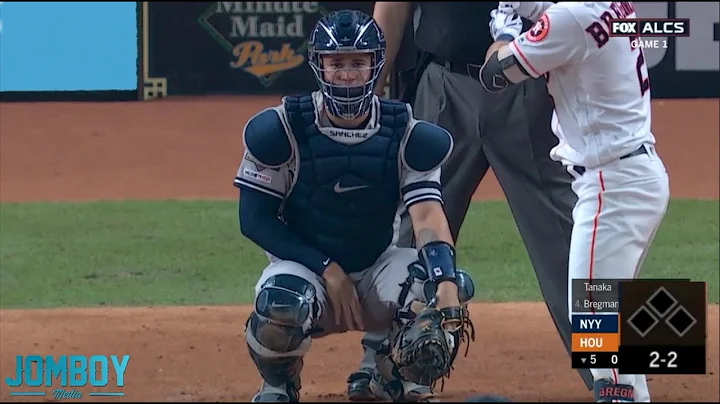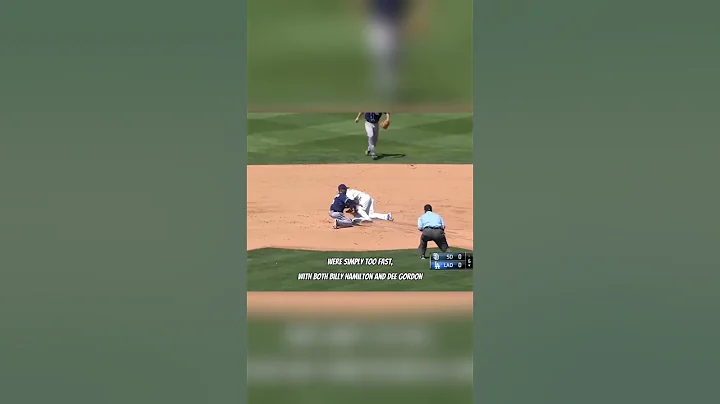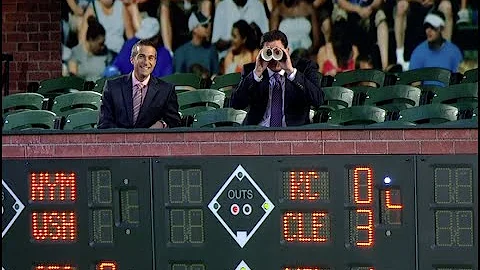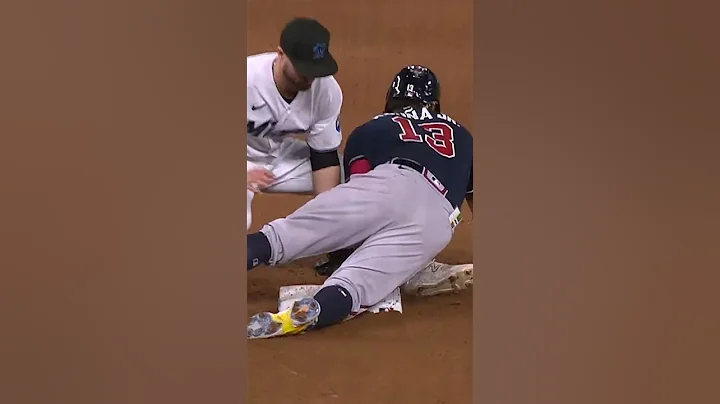
In today's baseball world, there is a vast gray area that remains unknown.
On the surface, most of the public's awareness of stealing signals between pitchers and catchers comes from online rumors and is unfounded. But within the MLB major leagues, illegal password theft has become ubiquitous with the support of high technology-this is a fact that players and team workers firmly believe in.
"This is a problem that pervades the entire league," said an MLB team manager. "The league has not done enough in terms of supervision and prohibition."
Technical password theft is by no means limited to one team. Case. MLB prohibits teams from using electronic devices to steal signals from catchers and use them to transmit messages. Still, the president's office gets complaints about all kinds of organizations—mysterious men in white sending signals from center field, elaborate systems equipped with television cameras and tablets. But since and the Boston Red Sox were punished in 2017, MLB has never issued a ticket to any team for violating signal stealing, at least in public.
In the same year that the Red Sox used Apple Watches to steal signals, MLB was going through a troubled year.
Pitcher Mike Fiers and four other Houston Astros players who won the championship with the team in 2017 said that during home games that season, the Astros used a camera placed in center field to steal in real time. A secret signal between pitching catchers from other teams.
Now, with the Astros announcing the firing of former assistant general manager Brandon Taubman, MLB's investigation into the Astros may go further to confirm the identities of those in the team who knew about the code theft, and Will this phenomenon continue to exist or even develop new forms in subsequent seasons? The information currently available to The Athletic shows that the Astros' violations were limited to 2017.
"Since the beginning of the 2017 season, many teams have expressed general concerns about passwords being stolen," MLB wrote in an official statement released on November 13, local time. "After receiving a large amount of information from the general managers of each team, In response to these concerns, the league implemented a revised code theft policy before the start of the 2019 season. In addition, the league also developed detailed procedures to ensure that teams do not use video decoding to steal other balls during games. After integrating and analyzing this information, the league will decide whether to take necessary follow-up measures. "
At the beginning of the 2017 season, at least two Astros members reached a consensus and began to form a code stealing system. Among them was a struggling hitter who had benefited from code-stealing while playing for his former team, according to Astros insiders. The other was a coach who wanted to help. The duo reportedly believed that some of the Astros' opponents had begun taking advantage of off-game moves. The duo of
planned to build their own password stealing system in Houston, and they did just that.
"The game shouldn't be like that," Fiers said. The pitcher played for the Houston Astros from 2015 to 2017. He did not receive a contract extension from the team in the offseason after winning the 2017 World Series with the team. “They have advanced techniques and are willing to take extraordinary and even measures to win. Illegal means."
Three sources who worked for the Astros in 2017 or had direct knowledge of the team's code-stealing methods confirmed the existence of this phenomenon on the condition of anonymity.
Team sources said that the Astros' organized code-stealing activities require knowledge of video technology and the direct participation of at least members of the athletics department.

During this year's World Series, Taubman, who was fired on October 24 after being accused of inappropriate words and behavior toward three female reporters, accepted a league investigation. MLB will probably ask as much as possible about the Astros' code-stealing system in the future. According to sources, the league will also interview current and former Astros players and employees.
sources said that MLB had heard about this code stealing system before, but there was no sufficient evidence to prove that the Astros had violated regulations.
If the alliance digs deeper into possible code theft by the Astros, one of the inevitable challenges is that it is not easy to distinguish between conjecture and truth.
Paranoia about the Houston Astros runs deep within the league. Even though the league has introduced stricter new rules starting this season to combat code theft, during this year's World Series, the Astros' opponents, the Washington Nationals, still used a set of complex codes that had not been seen in in the previous playoffs. combination. During National League games, New York Yankees insisted that Astros players in the dugout used whistles to convey information to the field. Still, the league found no violations, and other rumors involving the Astros may be false, a source said.
In this decade, the Houston Astros, led by owner Jim Crane and general manager Jeff Luhnow, can be said to be on the opposite side of the entire league. This stems from the team's tremendous success, but also reflects the league's perception of the Astros' approach. As a result, industry insiders are more likely to talk about the Astros than any other team.
"People respect what this team has accomplished," said one general manager of one of the league's teams, "but there's disdain for the culture the Astros have created and the way they've chosen to get to where they are today."
The astronauts’ systematic password stealing plan in 2017 was actually not complicated. There is a camera in center field at Minute Maid Park, home of the Astros, and a television monitor a few steps away from the dugout on the wall of the tunnel between the dugout and the prep room. The camera will capture the secret signal sent by the opponent's catcher and display it on the TV surveillance screen. During games, team staff and players will sit on massage chairs in the wide aisles, trying to decipher each other's passwords through the screens on the opposite side.

In 2017, the Astros installed a television monitor in the area between the dugout and prep room at Minute Maid Park.
When team members think they have cracked the opponent's code, they will notify the players on the field of the opponent's pitcher's next move through some kind of loud bang - specifically, they will bang on a trash can in the tunnel. A bang usually means the opponent is about to throw a changeup or slow ball.
Phils confirmed the existence of this system. He admitted that his relationship with his old owners became very tense because he revealed the Astros' behavior to his new owners, the Detroit Tigers and Oakland Athletics.
"I just hope that the game can be cleaner. Some unknowing players have lost their jobs just because they played in the game," Phils said. "There are young players who were ruled out soon after the game started, and the result was a failed rescue. . It's ruining young players' career opportunities. Players who know about code stealing are better prepared, but most people don't, so I told my teammates about the system during the 2018 season. When Tiger was playing, there were a lot of young players on the team who wanted to make a name for themselves in the league. I wanted to help them and tell them, 'This thing really exists and you have to be mentally prepared.'"
There is also one thing to be careful about.
"I told my teammates that I've seen the Astros' system. I don't know how detailed the rules set by MLB are, but if the Astros didn't break the rules, they were at least skirting around," Fiers said. He became a free agent on December 1, 2017. "I have to let my teammates know the truth so that we can be ready when we go to Meili Stadium."
Two sources said that the Astros' use of the code stealing system continued into the 2017 playoffs. Another source firmly denied that claim, saying the system only ends with the regular season.
An Astros insider clearly remembers hearing the sound of a trash can just before the Astros hit a home run in a playoff game. But he also believed that the atmosphere in the stadium during the World Series was too intense for the Astros' code-stealing system to actually work. After all, there's one basic prerequisite for this system to work: The batter must be able to hear the message being delivered to him.
Sources said the Astros did not use the same code-stealing system during road games. In the 2017 World Series, the Astros defeated the Los Angeles Dodgers in seven games to win the championship. The decisive game was at their opponent's home court.
Accounts from an opposing pitcher and an Astros source indicate that even if the Astros disable the code-stealing system before the start of the playoffs, this time point is not too far away from the end of the regular season.
Danny Farquhar, a pitcher who played for the Chicago White Sox in the 2017 season, stepped onto Minute Maid Park twice in mid-September before the start of the playoffs that season. An Astros source recalled that Farquhar seemed to notice the Astros' movements.
The source revealed that Farquhar was standing on the mound and pointing at his ear.
"I heard a thud in the dugout, and it was like, every time the signal for a changeup goes down, there's a bat hitting the ring," Farquhar said. He is now the pitching coach for the White Sox's Winston-Salem Rush. "I threw a couple of pretty good changeups and they all went out. After the third time I heard the noise, I got off the pitcher."

Farquhar said when a runner reached second base , he and the catcher switched to a more complex code. For a long time, baserunners could legitimately see the signals between pitches and catches at second base and relay them to the batter with their eyes.
"The banging stopped," Farquhar said. "I guess they intercepted the code from the video and sent it to the dugout. That's my understanding of the whole thing. I was very disturbed. The media did not find me after this to understand the situation, so they asked I was filled with anger.”
The impact of the Astros’ code-stealing is difficult to measure, and not all members of the team used the system. "Some players don't like it," Fiers said. "Some don't want to know what the consequences are, and some are positive."
And those Astros players who have benefited from code stealing, Nor is this system always in use.
Still, the Astros probably wouldn't have put this system into practice if only a few players didn't think stealing codes offered an advantage, or at least wanted to keep the playing field fair.
sources said that the password stealing system had come up in internal discussions within the team. One day in the team cafeteria, a player lamented that the team had not set up the screen in time. Another time, a player bluntly stated that the team was looking forward to returning to Minute Maid Park and taking advantage of the trash cans.
On at least one occasion, some Astros players were worried about being discovered during a game, and someone in the dugout asked for the screen to be taken out of the tunnel and hidden.
For a long time, executives from other teams have repeatedly approached league officials and the media to express concerns about several teams headed by the Astros.
Some Astros employees believe that stealing passwords is essentially a defensive strategy. An Astros insider said code theft through technical means is common in sports and was surprised more information hasn't been made public yet. The anonymous person pointed out that those potential accusers may not be clean themselves, making it unlikely that they will come forward to expose the Astros. If MLB gets to the bottom of the Astros' conduct, team employees may be forced to decide whether to inform the league of what they see as conduct by other teams.
"I don't know if we have solid evidence, but we can certainly prove that other teams are engaging in similar behavior," Fiers said. "Going into the playoffs, we have Brian McCann on the team. (Brian McCann), we have different code combinations with the pitchers, you know, we're not going to play around, we're sure there are teams trying to do something to gain an advantage and win the game. . I dare not say that I have sufficient evidence. There are many factors that can be used to win at home, and it is difficult to catch them at other teams' home courts."
At the same time, Taubman also had the same problem as before. What happened is tangled.
In May 2018, before being fired by the Astros, Taubman went to Yankee Stadium to meet with a New York Yankees employee.Taubman believes the New York Yankees illegally stole other teams' codes. During the playoffs, the Cleveland Indians and Boston Red Sox each discovered that an Astros-related personnel named Kyle McLaughlin was taking photos near the dugout. McLaughlin was with Taubman for that meeting at Yankee Stadium in May 2018.
The league publicly accepted the Astros' argument that McLaughlin was performing the Astros' defensive duties against other teams during the 2018 playoffs. In October of that year, ESPN baseball reporter Jeff Passan published the first report revealing that Astros players were allegedly using trash cans to steal signals.
In the 2018 season, MLB took special measures for the first time in the playoffs to prevent teams from using electronic means to steal passwords. The league subsequently issued new rules for all teams in the spring of 2019, listing a six-page document outline and related FAQs.
The new rules include: cameras located above the outfield fence and between the foul poles are not allowed to capture images of catchers' signals; the installation of cameras in these areas requires pre-approval from the president's office. The alliance also issued a series of regulations on the placement and use of surveillance equipment and televisions, requiring an eight-second delay for each screen. In addition, MLB also dispatches dedicated personnel to each stadium to monitor team behavior.

Despite this, the Astros’ behavior in 2017 even violated the regulations at the time: “MLB prohibits teams from using electronic devices during games ‘for the purpose of stealing codes or transmitting information to gain an advantage.’” League President Rob Manfred noted in a 2017 statement.
That season, when MLB launched an investigation into the Red Sox's alleged use of electronic devices to steal Yankees codes, one of the league's goals was to understand the extent of the Red Sox front office's involvement. This is the first point listed by the league when explaining the punishment against the Red Sox, and may also indicate the future direction of the league's investigation.
"First of all, management and the front office were unaware of the breach," Manfred said at the time.
The history of sports is a history intertwined with password theft and all kinds of cheating. Today's sports world is no different than in the past, except that it has joined a high-tech arms race.
An Astros insider insists that the Astros should not become a negative example when other teams are stealing signals on a large scale and the league has not effectively stopped it.
The Houston Astros are always at the forefront of public opinion. Is it because they have made enemies in the league, or is it because the team is the initiator of code stealing?
It may be time for the MLB President's Office to address these issues.
statement: This article was compiled by Lanxiong Sports from The Athletic. The original authors are Ken Rosenthal and Evan Drellich, and the Chinese translator is Wang Weizhe.






















